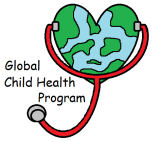
2016 Pediatric Global Health Skills Conference
McGill Department of Pediatrics Global Child Health Program
Friday June 3 & Saturday June 4, 2016
For this activity, we have requested continuing medical education (CME) study credits from McGill University, Office for Continuing Professional Development (CPD) which sponsors CME for physicians. The Office for CPD McGill University is fully accredited by the Committee on Accreditation of Canadian Medical Education (CACME).
Download the complete conference program
Conference Program
McGill University Medical Simulation Centre
3575 Parc Ave in La Cité Complex, Montreal, Quebec
7h30-8h: Registration & Coffee
8h-12h: Helping Babies Breathe (HBB)
An abridged train the trainers’ workshop of a neonatal resuscitation curriculum developed for resource-limited circumstances. The workshop is limited to 30 participants with previous NRP certification.
Speakers: Dr. Tobey Audcent and Dr. Andrea Hunter
Learning Objectives:
- Identify the key principles of neonatal resuscitation in a resource-limited setting
- Understand the impact of implementation of an educational tool for reduction of global early neonatal mortality
- Develop further skills in participatory educational workshop facilitation and leadership
Agenda:
|
8h-8h10 |
Introductions & Welcome |
|
8h10-8h40 |
Review of curriculum material development, pilot global site implementation and evaluation |
|
8h40-9h |
Review of curriculum materials and teaching principles |
|
9h-10h |
Small groups:
o Dry thoroughly o Clear airway, stimulate o Ventilation o Advanced care o Care of well newborn |
|
10h-10h30 |
Break |
|
10h30-11h30 |
Small groups (continued) |
|
11h30-11h50 |
Discussion of perceived areas for successes and challenges in implementing this curriculum to target audiences |
|
11h50-12 |
Wrap up and questions/final discussion |
12h-13h: Lunch
13h-17h: Emergency Triage, Assessment and Treatment (ETAT)
An introductory workshop to ETAT for health care professionals interested in providing care for acutely ill children in resource-limited settings, and implementing triage and emergency treatment systems in resource-limited settings. The workshop is limited to 30 participants with previous PALS certification.
Speakers: Dr. Jennifer Turnbull and Sherri Grady, RN
Learning Objectives*:
- Learn about ETAT concepts and how they have been adapted for resource-limited settings
- Understand the ETAT approach to triage and be able to categorise children as Emergency, Priority, and non-urgent
- Assess a child’s airway and breathing and give emergency treatment
- Assess a child’s circulation and level of consciousness and give emergency treatment
- Manage shock, coma, and convulsions in a child
- Assess and manage severe dehydration in a child with diarrhea
- Learn principles of planning and implementation of ETAT
*Adapted from Emergency Triage Assessment and Treatment Participant manual, WHO 2005
Agenda:
|
13h-13h30 |
Introduction to ETAT, Triage and the ABCD concept |
|
13h30-14h00 |
Airway and Breathing |
|
14h00-14h30 |
Circulation |
|
14h30-14h45 |
Break |
|
14h45-15h15 |
Coma and Convulsion |
|
15h15-15h45 |
Dehydration |
|
15h45-16h00 |
Break |
|
16h00-17h00 |
Putting it all together: practical drills |
Montreal Children’s Hospital, Room B 08.3019
1001 Boul Decarie, Montreal, Quebec
8h30-9h: Registration & coffee
9h-16h30: Post-Travel Debriefing Workshop
A workshop on post-travel debriefing for health professionals who oversee trainees completing global health electives. The workshop is limited to 20 participants.
Speaker: Dr. Christina Moore (PhD psychologist)
Learning Objectives:
- Understand the importance and goals of post-travel debriefing
- Understand the ethical and legal boundaries of supervisors providing post-travel support
- Learn and practice active listening skills
- Understand stress and learn effective stress reduction techniques
- Learn about available support resources for trainees
Agenda:
|
9h-9h20 |
Introduction and goals |
|
9h20-9h40 |
Lessons learned in supervision |
|
9h40-10h |
Ethics and legal boundaries |
|
10h-10h20 |
Listening and support skills: group work |
|
11h-11h30 |
Elements of effective listening |
|
11h30-12 |
Demonstration 1: group work |
|
12h-12h30 |
Working lunch |
|
12h30-13h |
Support practice 1 and discussion: group work |
|
13h-13h30 |
Support logistics, consultation |
|
13h30-14h20 |
Personal stress reduction techniques |
|
14hh20-14h30 |
Break |
|
14h30-15h |
Support practice 2 and discussion: group work |
|
15h-15h45 |
Support practice 3 and discussion: group work |
|
15h45-16h30 |
Supervision resources; evaluation |
|
16h30 |
Workshop conclusion |